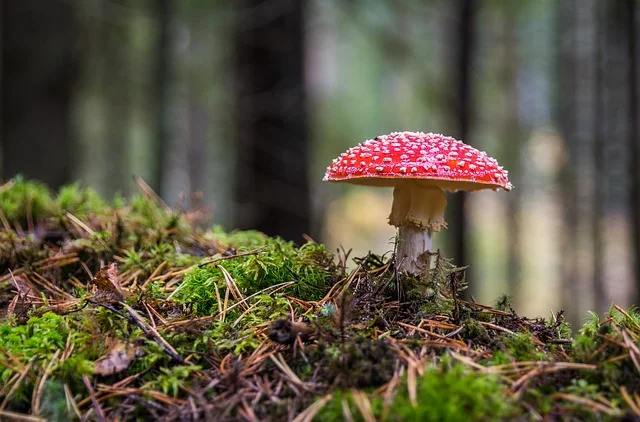University of Miami researchers conducted a study and found that the reproductive spores released by mushrooms, contribute to the accumulation of atmospheric water droplets. The researchers believe that huge amounts of mushroom spores in the air create a kind of aerosol and provoke showers through the accumulation of water.
Reproductive spores, which actively detach from mushrooms, attract moisture condensing in the air, creating tiny water droplets in the atmosphere like a mist. When the suspended moisture content of the air becomes as high as possible, it falls to the ground in the form of heavy rain.
Scientists note that this is easy to spot. Once one downpour in the fall is followed by mushroom growth, a succession of mushroom rains begins.
Using advanced electron microscopes, U.S. experts carefully studied the spores of mushrooms placed in a special container with a gaseous environment and high humidity. Several dozen varieties of mushrooms for the experiment selected, including seven species of damp spores.
All the spores quickly began to be covered with water, with some cells were joined together to form larger droplets.
It is worth noting that in nature, there are species of mushrooms capable of throwing in the air up to thirty thousand reproductive spores per second, so the ability of these organisms to provoke precipitation, if you consider it, does not look so fantastic.
To get the latest stories, install our app here.
By the way, six years ago, scientists calculated that every year in the atmosphere of our planet is emitted more than fifty million tons of mushroom spores – every square millimeter of the Earth has on average about a thousand spores, including the ocean and regions with permafrost.
So when the mushroom rains in the fall, you can be sure that these unique organisms (not animals or plants) are “ordering” their own wet weather.
To get the latest stories, install our app here.
